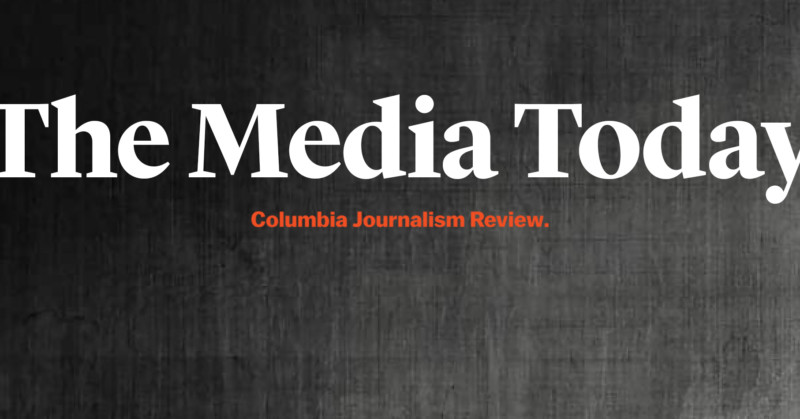Leaked files from alt-right host raise some hard questions

Recently, a group of unnamed hackers claiming association with the hacker collective known as Anonymous released more than 180 gigabytes of data from Epik, a web-hosting company whose clients included a number of alt-right groups and services, including right-wing Twitter alternatives Gab and Parler, as well as pro-gun and pro-Trump sites. “This dataset is all that’s needed to trace actual ownership and management of the fascist side of the internet,” the group said in its news release, adding that the information it acquired would help people identify the actors behind disinformation and QAnon sites, among others. The data dump is said to contain account information for all of Epik’s clients, including the registered owner’s email address, mailing address, and other information (although some right-wing sites use anonymization services to conceal this data). The leak was first reported last week by Steven Monacelli, an independent journalist, on Twitter; in the days that followed, it prompted coverage by a range of national outlets, from the Washington Post and CNN to Gizmodo and Mother Jones.
The importance of the information in the Epik hack—if it proves to be accurate—seems obvious, especially for researchers tracking QAnon groups or other disinformation sources, hate-speech advocates, and domestic extremists. “The company played such a major role in keeping far-right terrorist cesspools alive,” Rita Katz, executive director of SITE Intelligence Group, which studies online extremism, told the Washington Post. “Without Epik, many extremist communities—from QAnon and white nationalists to accelerationist neo-Nazis—would have had far less oxygen to spread harm, whether that be building toward the January 6 Capitol riots or sowing the misinformation and conspiracy theories chipping away at democracy.”
Emma Best, co-founder of Distributed Denial of Secrets, a journalism nonprofit that specializes in leaked data, told the Post that some researchers have called the Epik hack “the Panama Papers of hate groups,” a comparison to the leak of more than 11 million documents that exposed the offshore finance industry, and earned the International Consortium of Investigative Journalists a Pulitzer. Megan Squire, a professor at Elon University who studies right-wing extremism, told the Post “It’s massive. It may be the biggest domain-style leak I’ve seen and, as an extremism researcher, it’s certainly the most interesting. It’s an embarrassment of riches.”
Like the Panama Papers, getting information out of the huge database and making sense of it is time-consuming, which may explain why coverage of the Epik hack lagged; some outlets published their first stories more than one week after Monacelli’s tweet. So far, most reports on the Epik hack have been explainers, recapping the data breach and then bringing in commentary on the potential value of the leaked materials from cybersecurity experts and extremism scholars. Gizmodo, in its report, noted that it had “downloaded copies of the Epik data and will be assessing its content.”
The individuals behind the Epik leak are completely unknown, and it’s unclear whether they are actually affiliated with Anonymous—the group isn’t really a coherent entity with membership requirements and a central administration. Such concerns raise questions about motivation; they also place a premium on newsworthiness. What follow-up coverage will look like is anyone’s guess, and will tell us something about how newsrooms navigate a particular ethical quandary: how—or whether—such materials inform future reporting efforts on disinformation, viral conspiracy theories, and online extremism.
Here’s more on hacking:
- The doxxed: After publicizing the alleged Anonymous hack, Monacelli says he was “doxxed”—in other words, had personal information revealed publicly—and accused of being a pedophile by a site that was hosted by Epik. During what The Daily Dot described as a heated online discussion with Robert Monster, the founder of Epik, Monacelli complained about the site, which he said had also doxxed other journalists and researchers, and Monster agreed to remove it from the service. Monacelli has also been using some of the increased attention from the hack to fundraise for his Patreon, which supports his work as an independent journalist.
- ‘Lex Luthor’: Monster, who has referred to himself as “the Lex Luthor of the internet” after the villain from the Superman comic books, told NPR he’s not a free-speech absolutist but a Christian libertarian. “If somebody wants to go through a messy swamp in their search for truth, who are we to decide that they shouldn’t have the opportunity to do that?” he said. Monster says he refused to host 8chan because of “the possibility of violent radicalization” in the wake of mass shootings, but, according to a Vice report, he also uploaded links to the Christchurch shooter’s video and manifesto.
- The aftermath: A Florida real estate brokerage firm has fired one of its agents after his name showed up in the Epik database as the contact person for domain names suggesting Holocaust denial views.
Other notable stories:
- Barry Diller’s IAC media conglomerate is in “advanced talks” to acquire magazine publisher Meredith, owner of brands including People and Better Homes & Gardens, the Wall Street Journal reports, based on interviews with people familiar with the situation. “The deal, which is expected to be valued at more than $2.5 billion, would vastly expand IAC’s collection of online publications, which include Brides, Serious Eats and TripSavvy,” the Journal reports. In 2017, Meredith bought Time Inc. for $2.8 billion and then later sold Time, Fortune, and Sports Illustrated magazines.
- Major news outlets in the US have devoted a huge amount of time and resources to the case of Gabrielle Petito, a missing YouTuber, but the press often ignores stories about women of color who go missing, the New York Times reports. On a recent episode of her show, MSNBC host Joy Reid noted that PBS anchor Gwen Ifill, “who broke barriers as a Black woman in the Washington press corps, coined a term for the phenomenon nearly two decades ago: ‘missing white woman syndrome.’”
- A memo written by conservative legal scholar John Eastman and circulated by the White House, which detailed how Donald Trump could invalidate the 2020 election and have himself declared president, was seen by many political theorists as a smoking gun but apparently wasn’t enough to merit any mention in the New York Times, writes Dan Froomkin at Presswatch: “It is, as legal scholar Asha Rangappa put it, ‘a sinister plan.’ It is, as New York magazine’s Jonathan Chait put it, one of ‘a few key moments’ in ‘the Republican Party’s long, gradual slide into authoritarianism.’ But what it isn’t, according to the New York Times, is worth writing about.”
- For CJR’s latest magazine, Brendan Fitzgerald mapped incidents of violent right-wing extremism and local-news losses, and spoke with reporters about rising domestic terrorism at a time of declining local news. “If you don’t understand the place where something happens,” Chris Jones, who covers domestic extremism for 100 Days in Appalachia, told him, “you’re preventing yourself from being able to understand why it happens.”
- Facebook has agreed to send Antigone Davis, its global head of safety, to testify before a Senate Commerce subcommittee hearing on September 30 into recent reports about the impact the company’s services have on consumers, a Facebook spokesperson confirmed to CNBC. The Wall Street Journal published a series of articles recently based on some internal documents it obtained from anonymous sources, and one of the stories revealed that Facebook’s own researchers had raised concerns about the negative impact that the company’s Instagram service was having on the mental health and self-esteem of young girls.
- Members of the White House press corps filed a formal complaint after a meeting between President Biden and British prime minister Boris Johnson ended with questions from members of the British press but no American outlets. According to a report from the Washington Post, the White House “appeared to point the finger at Johnson, insisting the British leader was responsible for the seemingly chaotic scenes in the Oval Office by springing an unplanned news conference.”
- Andrew McCormick writes for CJR about the $3.5 trillion spending bill before Congress, which he says is a crucial foundation for the next step in fighting climate change, the upcoming COP26 summit. The importance of the bill “is all but absent from the news,” McCormick writes. “In many stories about the bill, in fact, the word ‘climate’ does not appear at all. Perhaps reporters or editors imagine the summit doesn’t interest their audiences. But that undervalues COP26: At a time when scientists agree time is short for humanity to pull back from the brink, it’s no exaggeration to say the meeting’s outcomes concern every living person on Planet Earth.”
- As social-media companies such as Facebook and YouTube have tightened their policies around disinformation on their platforms, Russian agents’ propaganda efforts have moved to other outlets to spread their messages, Vasily Gatov, a visiting fellow at USC’s Annenberg School of Communications and Journalism told the Financial Times. Research shows that among those new outlets are the comment sections of Western media companies and publishers, according to a report from Cardiff University. Some propaganda distributors create a network with multiple mirror sites with identical content and then seed social media with it, the researchers say.
- The leader of a far-right party in Canada had his Twitter account temporarily suspended, according to a report from Vice, after he directed his followers to harass journalists. Maxime Bernier, the head of the People’s Party of Canada, was getting requests for comment after his party failed to elect a single candidate in the recent election. Instead of answering them, he chose to screenshot the requests and post them—including some phone numbers and email addresses—on Twitter, where they were picked up by trolls from 4chan and other message boards, leading to a campaign of harassment and abuse for some journalists.


